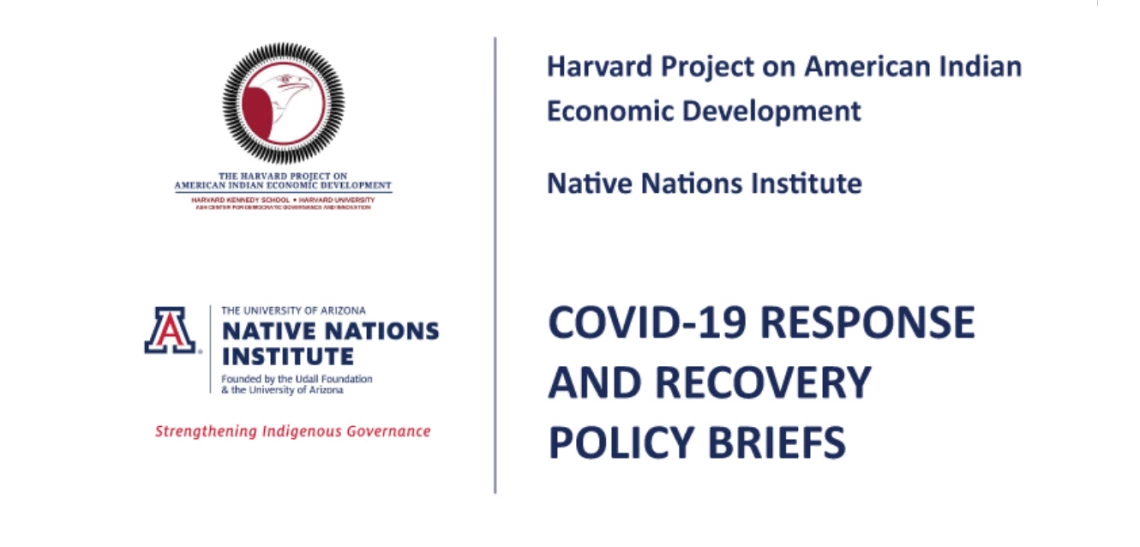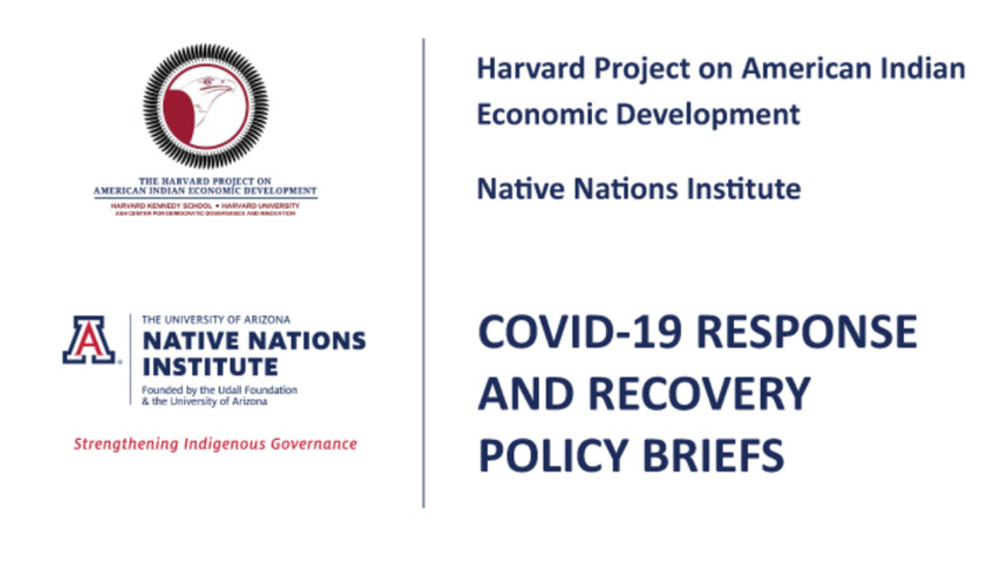The COVID‐19 pandemic has wrought havoc in Indian Country. While the American people as a whole have borne extreme pain and suffering, and the transition back to “normal” will be drawn out and difficult, the First Peoples of America arguably have suffered the most severe and most negative consequences of all. The highest rates of positive COVID‐19 cases have been found among American Indian tribes, but that is only part of the story. Even before the pandemic, the average household income for Native Americans living on Indian reservations was barely half the U.S. average. Then the pandemic effectively shut down the economies of many tribal nations.3 In the process, tribal governments’ primary sources of the funding – which are needed to fight the pandemic and to meet citizens’ needs – have been decimated. As with the rest of the U.S., emergency and interim support from the CARES Act and other federal measures have helped to dampen the social and economic harm of the COVID‐19 crisis in Indian Country. Yet this assistance has come to the country’s 574 federally recognized Indian tribes with litigation‐driven delay and counterproductive strings attached, and against a prepandemic background characterized by federal government underfunding and neglect – especially as compared to the funding provided and attention paid to state and local
governments.
The precedent in the CARES Act, acknowledgment that the federally recognized tribes carry responsibilities which mirror those of state and local governments is a breakthrough; tribes must continue to receive significant additional support along with their state and local counterparts as further pandemic relief funding is crafted by Congress. In the process, it is imperative to consider whether and how the current crisis in Native America can be turned into an opportunity for tribes to emerge from this crisis with greater cultural strength and community wellbeing, and with more robust and resilient economies and governments. Although laid through adversity, the grounds for such opportunity have been clarified by the COVID‐19 crisis. If such a hope is to be realized, both tribal governments and the federal government will have critical roles to play. As we discuss in our forthcoming series of companion policy briefs, turning crisis into opportunity will require tribes’ concerted and clear‐headed commitment to “nation building” – i.e., building and rebuilding the legal, political, and social institutions that undergird the realization of community core values and the successful pursuit of community‐determined goals. Such institutions are not alien to American Indian tribes. They governed themselves for millennia prior to colonialization. The difference today, however, is that U.S. federal governmental policies are a key determining factor in Native nations’ progress toward rebuilding their capacities to govern and govern well.
In this policy brief, we offer guidelines for federal policy reform that can fulfill the United States’ trust responsibility to tribes, adhere to the deepest principles of self‐governance upon which the country is founded, respect and build the governing capacities of tribes, and in the process, enable tribal nations to emerge from this pandemic stronger than they were before. We believe that the most‐needed federal actions are an expansion of tribal control over tribal affairs and territories and increased funding for key investments in tribal communities.
Additional Information
Henson, Eric C., Megan M. Hill, Miriam R. Jorgensen, Joseph P. Kalt. July 24, 2020. Policy Brief: Emerging Stronger than Before: Guidelines for the Federal Role in American Indian and Alaska Native Tribes’ Recovery from the COVID‐19 Pandemic. Cambridge and Tucson: Harvard Project for American Indian Economic Development and Native Nations Institute.




